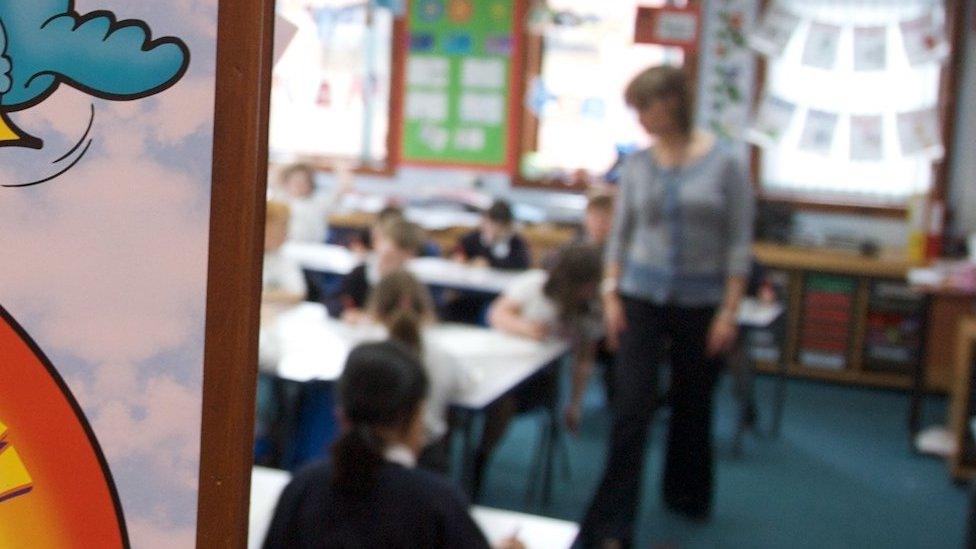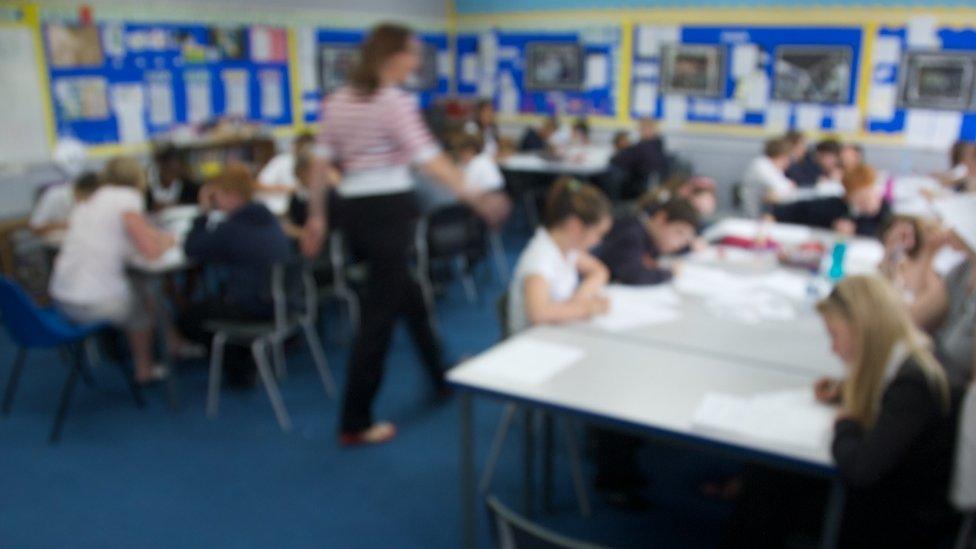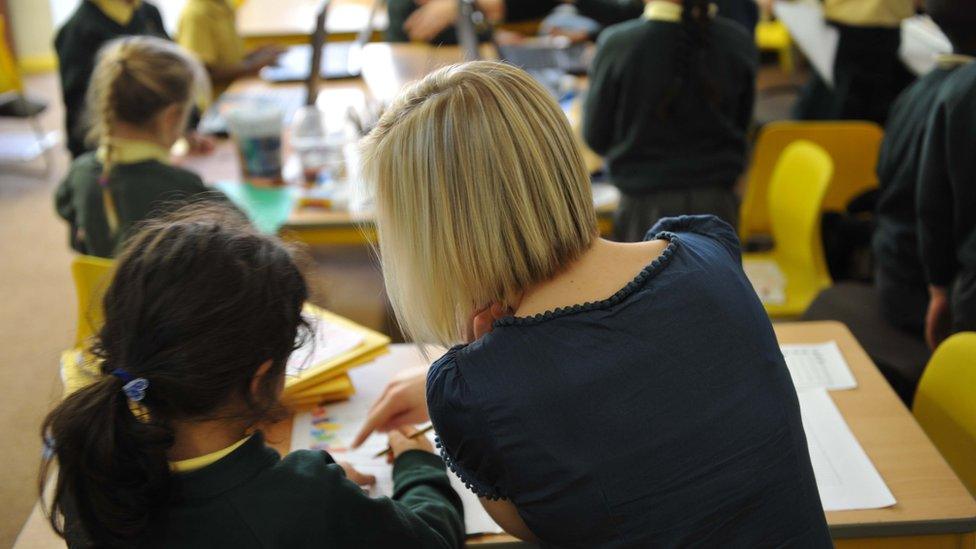EIS union calls for 10% pay rise for Scottish teachers
- Published

Both the EIS and the SSTA have raised the possibility of industrial action over pay if the talks do not lead to an acceptable offer
Scotland's largest education union has called for a 10% pay rise for all teachers.
The Educational Institute of Scotland (EIS) said teachers' pay had fallen in value by a fifth over the past decade.
Pay is negotiated nationally by the unions, councils and the Scottish government.
Responding to the claim from the EIS, a spokeswoman said the Scottish government would play its part in the discussions over teachers' pay.
The claim is well in excess of the government's proposed rise for many other public sector workers.
The 10% claim is likely to become the official position of the teachers' side in the talks, which are set to begin shortly. It will firstly need to be ratified with the smaller teachers' unions.
Both the EIS and the SSTA have raised the possibility of industrial action over pay if the talks do not lead to an acceptable offer.
The unions argue teachers' pay should be restored to what they describe as "pre-austerity levels".
EIS general secretary Larry Flanagan said: "We are launching our 2018 pay campaign today with a very strong and very clear message to local authorities and the Scottish government - Scotland's teachers deserve a substantial pay rise.
"The Scottish government has repeatedly said that education is its number one priority, and local authority representatives have also spoken of the importance of teachers in the delivery of high quality education.
"Our campaign will reflect this, in urging that the teachers who are central to the provision of education be properly valued and fairly paid for the vital work that they do. A good first step towards restoring teachers' pay to an acceptable level would be the delivery of a 10% pay increase for all teachers in 2018."
In December's Scottish budget, Finance Secretary Derek Mackay proposed a 3% pay rise for public sector workers earning less than £30,000 a year and 2% for those earning more.
Teachers' pay is agreed by the Scottish Negotiating Committee for Teachers (SNCT), which is made up of unions, the government and councils.
'Attractive career'
A spokeswoman for the Scottish government said: "Teachers' pay is a matter for the SNCT and negotiations for 2018-19 will begin once the unions have formally lodged their pay claims. The Scottish government will play our part in those discussions.
"It should be noted this government was the first in the UK to commit to lift the 1% public sector pay cap, and the teachers' pay deal for 2017-18 reflects this commitment.
"That deal also commits members of the Scottish Negotiating Committee for Teachers to undertaking a strategic review of pay and reward to ensure teaching remains an attractive career, and we will play our part in that process."

Industrial action is still some way off, but both the EIS and the SSTA say they would be prepared to go down this path if necessary to secure what they describe as a "restorative" pay rise.
Before the EIS takes any action, there would need to be a ballot of members - the law now requires at least 50% of them to take part.
Mr Flanagan said teachers' pay in Scotland had declined by at least 20% in real terms, compared to the Retail Price Index, over the past decade.
He said increases to pension contributions and national insurance meant they had suffered a real-terms cut of almost 25% in their take-home pay.
COSLA, the body which represents Scotland's councils, confirmed it had received the pay claim from the EIS.
Resources spokeswoman Councillor Gail Macgregor said: "We have our first meeting on the pay deal for teachers in early February.
"We got the claim today which we will now take away and carefully consider - obviously taking full cognisance that, as employers, our pay awards have to be both sustainable and affordable."
- Published23 January 2018

- Published5 January 2018

- Published18 December 2017
